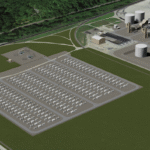Cool Down, Save Energy: Summer Energy Efficiency Tips
Beat the Heat with Energy-Efficient Cooling
As the summer months approach, the importance of energy efficiency becomes even more pressing. With temperatures soaring and energy consumption on the rise, it’s crucial to find ways to cool down without breaking the bank. In this article, we’ll explore the top summer energy efficiency tips to help you stay cool while saving energy.
1. Adjust Your Thermostat
One of the simplest ways to reduce energy consumption is to adjust your thermostat. Try setting it to 78°F (25°C) when you’re not home or sleeping. This can save up to 10% on your energy bill. You can also consider installing a smart thermostat that can learn your schedule and preferences to optimize your cooling.
2. Use Natural Ventilation
Natural ventilation is a cost-effective and eco-friendly way to cool your home. Open windows and doors to allow cool air to enter and hot air to escape. You can also install solar shades or awnings to block direct sunlight and reduce heat gain.
3. Upgrade to Energy-Efficient Appliances
Old appliances can be major energy guzzlers. Consider upgrading to energy-efficient models with the ENERGY STAR label. These appliances use significantly less energy and can help you save up to 30% on your energy bill.
4. Seal Air Leaks
Air leaks can allow hot air to enter your home and cool air to escape. Seal any gaps or cracks around windows, doors, and ducts to prevent air leaks. You can use caulk, weatherstripping, or spray foam to seal these areas.
5. Use Ceiling Fans
Ceiling fans are a great way to circulate air and make your home feel cooler. They can also help reduce the need for air conditioning by up to 40%. Run your ceiling fans in a counterclockwise direction during the summer to push cool air down.
6. Plant Trees and Greenery
Trees and greenery can provide natural shade and cooling. Planting trees around your home can reduce the need for air conditioning by up to 50%. You can also consider installing a green roof or living wall to increase your home’s cooling potential.
7. Use Window Treatments
Window treatments can help block direct sunlight and reduce heat gain. Install window films, shades, or blinds to keep your home cool and reduce energy consumption.
8. Conduct an Energy Audit
Conducting an energy audit can help you identify areas of energy inefficiency in your home. Hire a professional to assess your home’s energy usage and provide recommendations for improvement.
9. Use a Programmable Thermostat
A programmable thermostat can help you save energy by automatically adjusting the temperature when you’re not home or sleeping. You can also set it to raise the temperature when you’re away or sleeping to reduce energy consumption.
10. Maintain Your HVAC System
Regular maintenance is crucial for keeping your HVAC system running efficiently. Schedule annual tune-ups with a professional to ensure your system is in good working condition.
Conclusion
Summer energy efficiency is crucial for reducing energy consumption and saving money. By implementing these simple tips, you can stay cool while keeping your energy bills in check. Remember to adjust your thermostat, use natural ventilation, and upgrade to energy-efficient appliances to make a significant impact.
FAQs
Q: How much can I save by adjusting my thermostat?
A: You can save up to 10% on your energy bill by adjusting your thermostat to 78°F (25°C) when you’re not home or sleeping.
Q: What is the ENERGY STAR label?
A: The ENERGY STAR label is a certification program run by the U.S. Environmental Protection Agency that identifies energy-efficient products.
Q: How can I seal air leaks in my home?
A: You can seal air leaks by using caulk, weatherstripping, or spray foam to seal gaps or cracks around windows, doors, and ducts.
Q: Can I use ceiling fans in the winter?
A: Yes, you can use ceiling fans in the winter by reversing the direction to clockwise, which can help circulate warm air and reduce the need for heating.
Q: How often should I conduct an energy audit?
A: It’s recommended to conduct an energy audit every 5-10 years to identify areas of energy inefficiency and provide recommendations for improvement.


.png?w=150&resize=150,150&ssl=1)



.png?w=150&resize=150,150&ssl=1)
